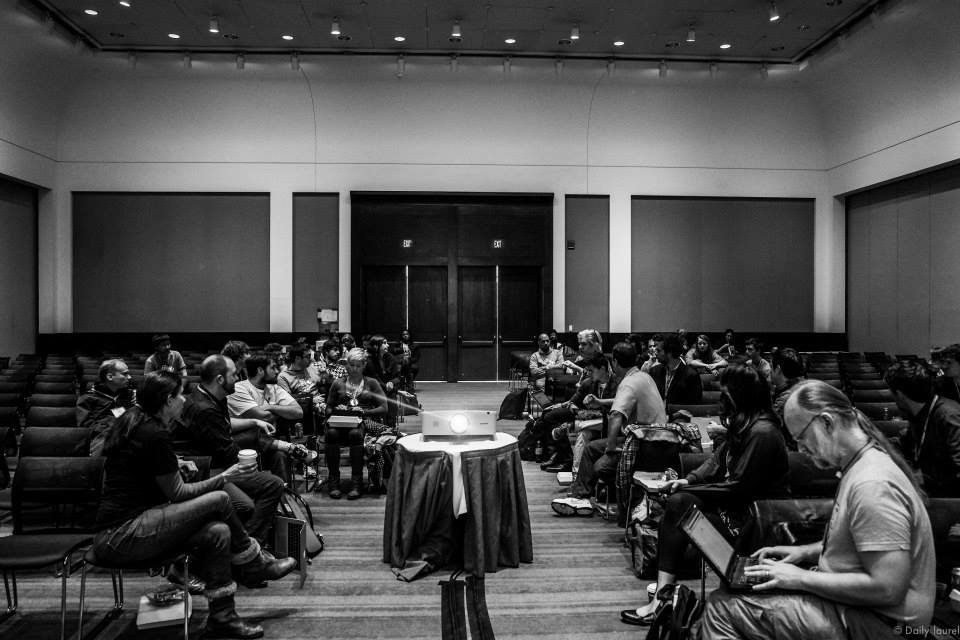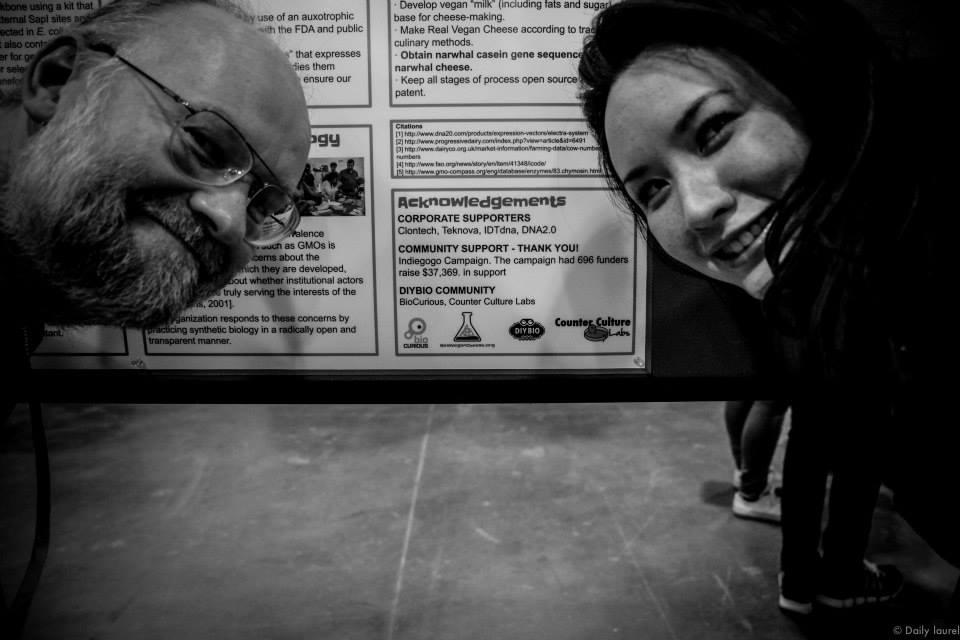Vegan cheese wins 1st prize for open labs at iGEM
Published 4 November 2014 by Quitterie Largeteau et Aurélien Dailly
Vegan cheese won the gold medal at iGEM’s first competition open to community labs. The international synthetic biology competition, which attracted 2,500 participants in Boston, Massachusetts, ended on November 3.
This year, to celebrate the competition’s 10th anniversary, the iGEM (International Genetically Engineered Machine) foundation went all out, ignoring the regional pre-selections to gather all competing teams for its opening Giant Jamboree from October 31 to November 3. 245 teams from 32 countries converged in Boston on Thursday, November 30. The program featured lectures, experience sharing, project presentations, workshops, networking, an award ceremony and festivities!

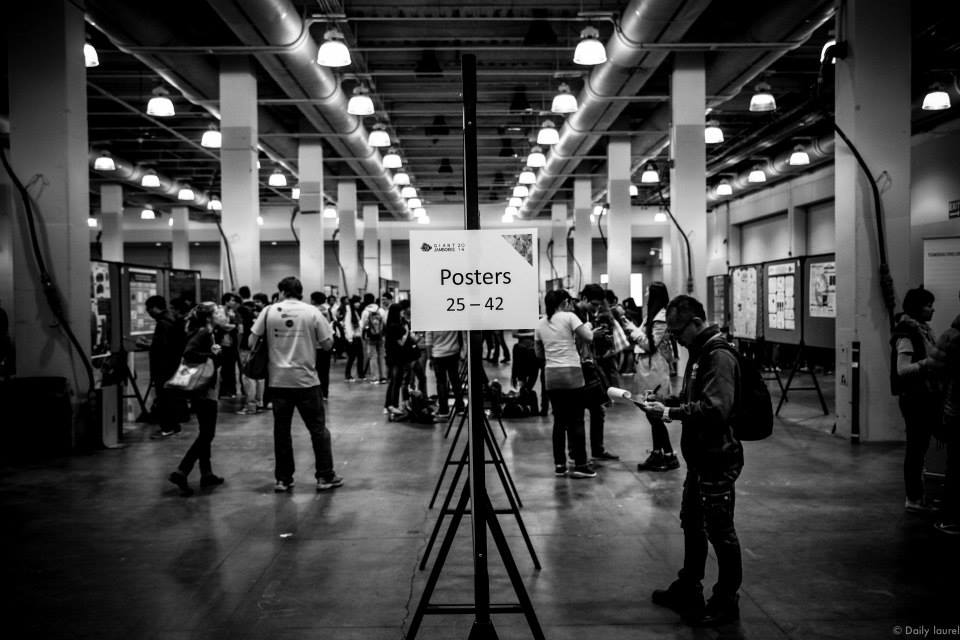
Open scientific congress, in costume
The Giant Jamboree could have been a conventional scientific congress, with lectures, project presentations and impromptu debates in the halls. However, this gathering included student project leaders competing at iGEM, zealous citizens, DIYbio hacktivists and professional researchers, artists, entrepreneurs, and even members of the FBI!
This year iGEM opened a category (and therefore a prize!) specifically for community labs. California’s Tech Museum of Innovation and five biohackerspaces decided to get their feet wet: Genspace (New York), Baltimore Under Ground Science Space (BUGSS), CounterCultureLabs & BioCurious, LA biohackers and London Biohackspace, the sole European amidst the Americans!
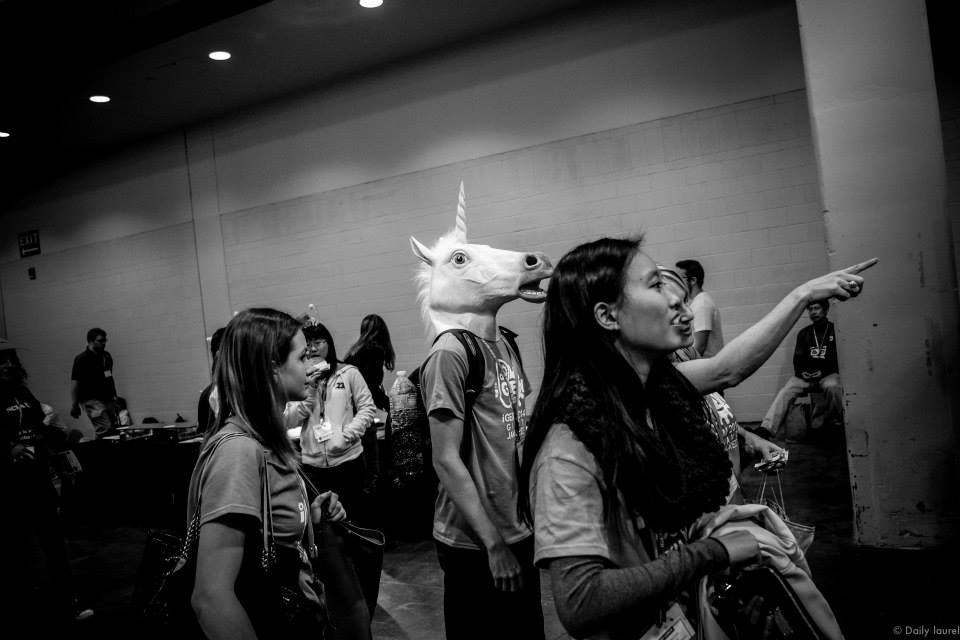
Democratizing biotech
All these labs carry a common desire for citizen appropriation of synthetic biology, based on shared knowledge, equipment and resources. The Open Lab project developed at New York City’s legendary Genspace, led by biohacking figure Ellen Jorgensen, is a good example.
As a complete project, it focuses on the Open Lab Blueprint, a practical guide for launching your own biolab, and develops the BioGlyphics platform for creating and using experimental graphic protocols. As an ardent supporter of open source, Genspace also pushes the limits of iGEM’s open stance, even touching on the concept of biobricks, the famous genetic Lego reserved for “iGEMers”. The current issue is to be able to distribute freely the biobricks that they produce themselves to other members of the community labs…
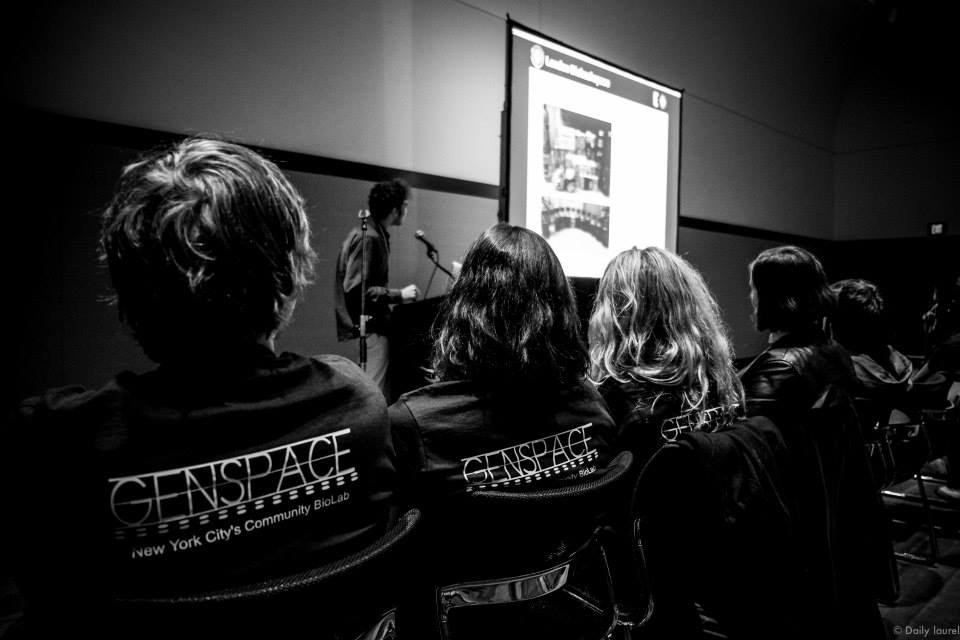
On the first day of the Giant Jamboree, however, another project was in the spotlight: Genspace member Will Canine announced the launch of a Kickstarter campaign for his OpenTrons project, the first open source robot for rapid prototyping in biotechnology.
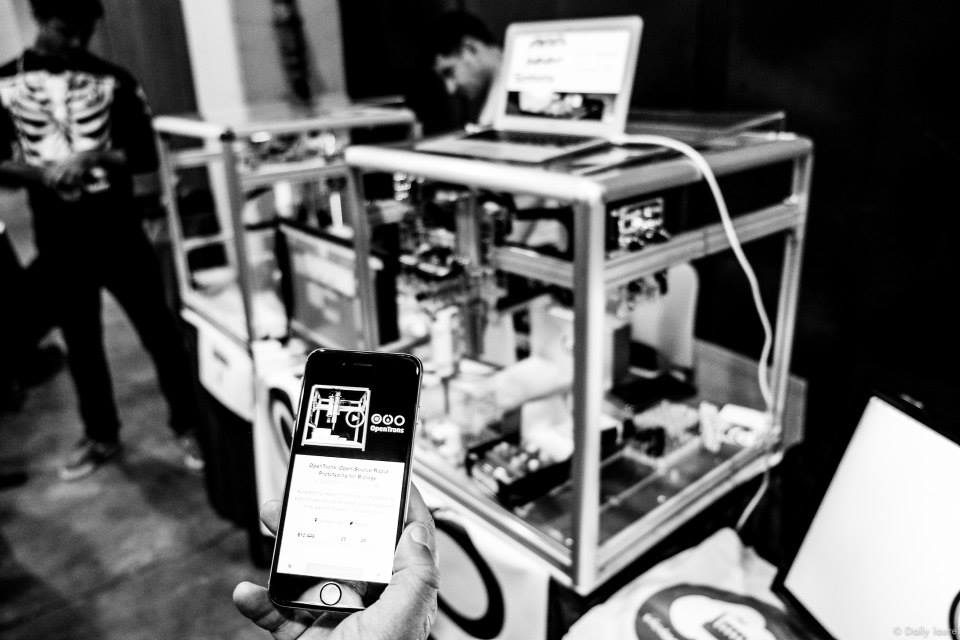
Gold medal for the “Real Vegan Cheese project”
On Monday, November 3, the “Real Vegan Cheese project” by Californian biohackerspaces BioCurious and CounterCultureLabs won the first iGEM competition for the category “community labs”. A group of 40 people, including more than a few carnivores, created the first cheese produced from genetically modified yeast (see the open recipe!). The controversy over the ecological and sanitary impact of using animals in human food production is back on the table. And it hasn’t gone unnoticed:
Now @CountrCultrLabs and @biocuriouslab are showing off @RealVeganCheese at #iGEM2014 – a fantastic real-world impact #DIYbio project
— Philipp Boeing (@PhilippBoeing) November 1, 2014
After being on the backburner for a few years, the Real Vegan Cheese project was revitalized by the iGEM experience, the team admits. On Sunday, November 2, during a panel discussion on iGEM opening up to community labs, the leading figures of the movement (Ellen Jorgensen, co-founder of Genspace, Eri Gentry, co-founder of BioCurious, Mac Cowell, co-founder of DIYBio.org) agreed that the competition was relevant and created opportunities for networking and updating in the field of synthetic biology.
#iGEM2014: like getting a preview of the best synthetic biology literature for the next 5 years. Amazing work by all of the finalists! @iGEM — Patrik D’haeseleer (@PatrikD) 3 Novembre 2014
However, open labs’ biggest challenge is funding, which requires even more ingenuity to dig up private, public or community financing, especially to offset the cost of the competition ($3,500 per registered team). Most importantly, iGEM denies their access to the biobricks, in total contradiction with the foundation’s values of openness—an openness that would allow their projects to grow well beyond the window of a competition.
